Childhood in North Korea: how children grow up in the most closed country in the world
Childhood is a wonderful time and the most valuable time in any person's life. And it's not great at all when children work in the fields or blindly support dictators. But if you are one of five million children under the age of 14 born in North Korea, then, unfortunately, this is the reality.
Children in this country are taught to love history and all rulers — from the founder of the state Kim Il Sung to the real ruler Kim Jong Un. So, what's it like to grow up in the most closed country in the world?
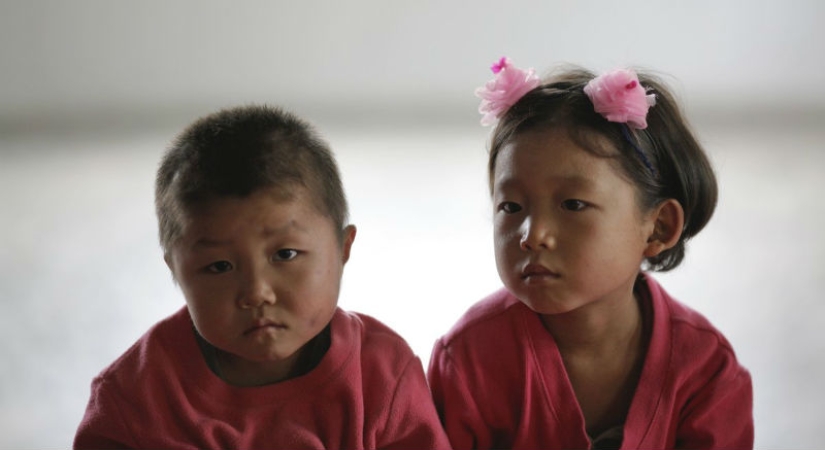 Source: Business Insider
Source: Business Insider
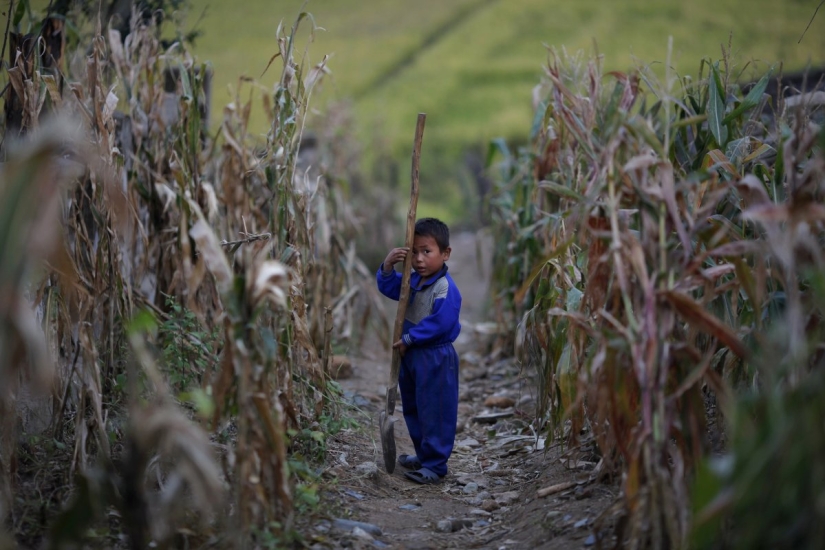 Children born and living outside the capital should work on farms.
Children born and living outside the capital should work on farms.
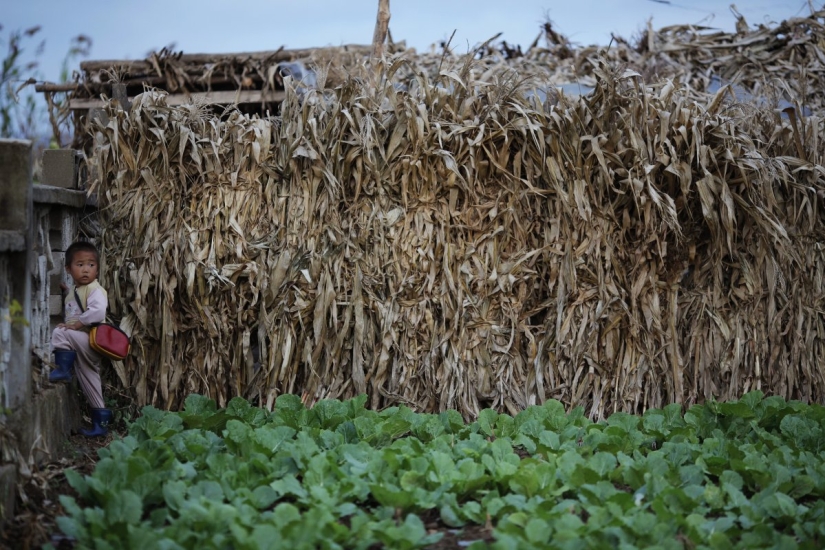 Some sources claim that workers who do not obey are sent to camps as punishment.
Some sources claim that workers who do not obey are sent to camps as punishment.
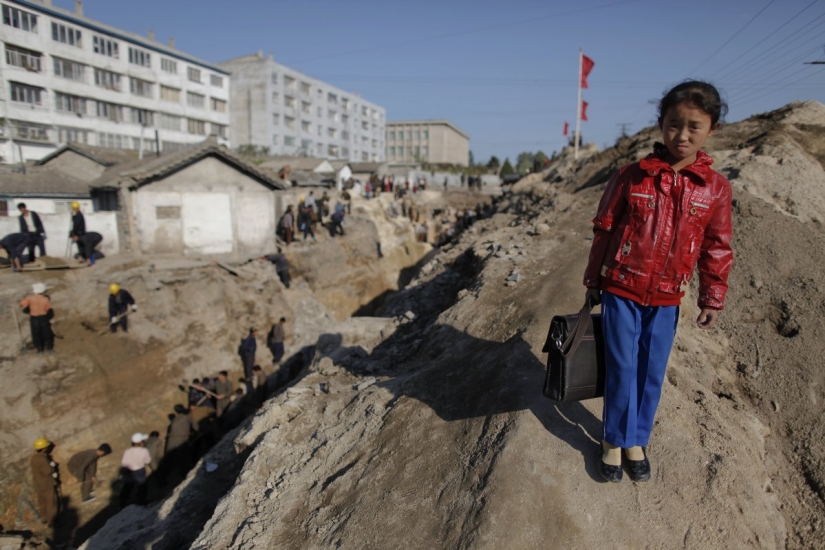 In less developed regions, the road to school may run through objects under construction and other dangerous territories. The few school buses are often converted from dump trucks.
In less developed regions, the road to school may run through objects under construction and other dangerous territories. The few school buses are often converted from dump trucks.
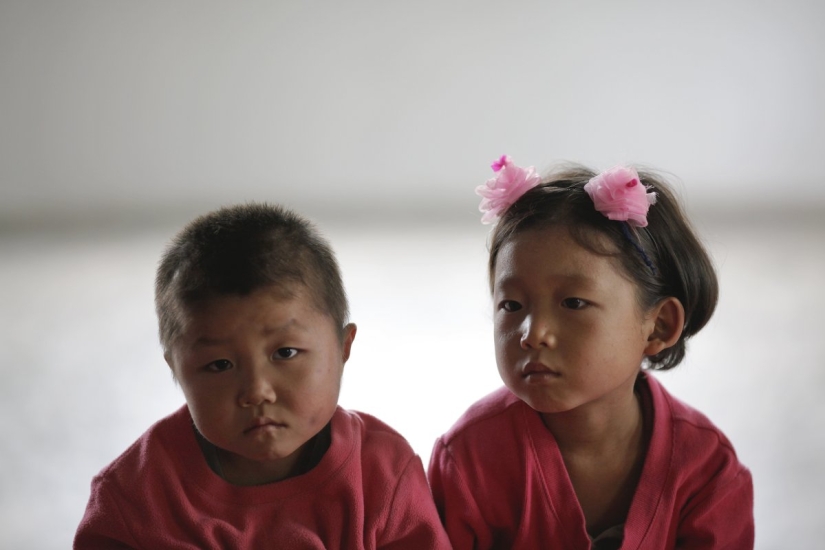 For orphans in North Korean orphanages, life is even harder. Even if children are adopted, there is a risk that parents will give them back if they cannot provide.
For orphans in North Korean orphanages, life is even harder. Even if children are adopted, there is a risk that parents will give them back if they cannot provide.
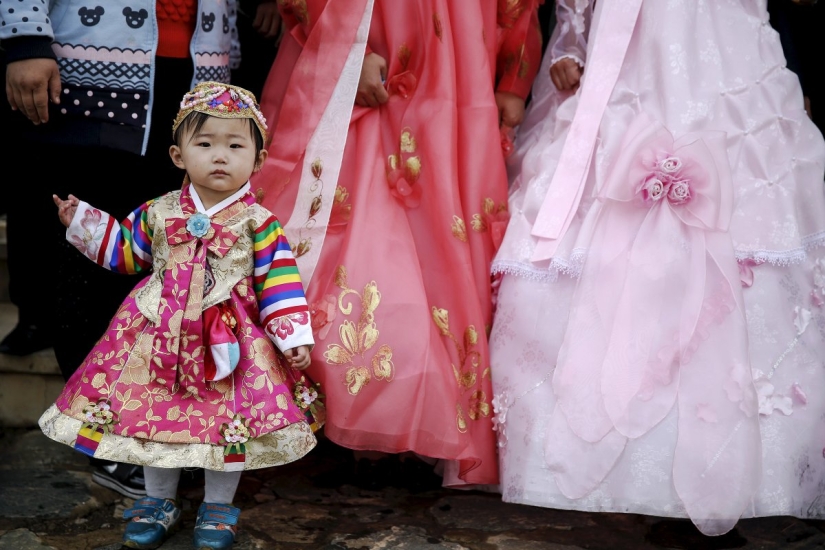 Families, where there is still a little money, can afford a little luxury - for example, traditional costumes.
Families, where there is still a little money, can afford a little luxury - for example, traditional costumes.
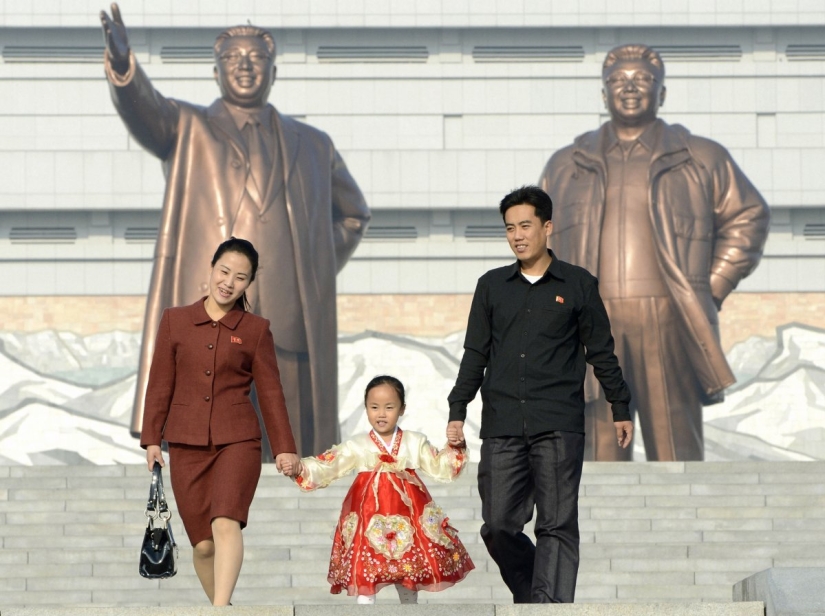 But money does not exempt families from political responsibilities either. Many idolize the leaders of the country and periodically travel with their children to historical monuments to pay tribute.
But money does not exempt families from political responsibilities either. Many idolize the leaders of the country and periodically travel with their children to historical monuments to pay tribute.
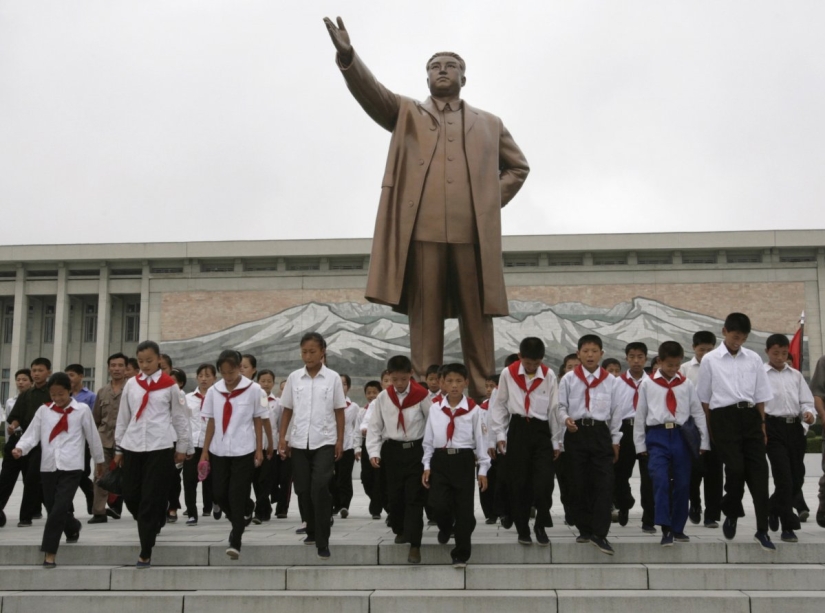 Schoolchildren and students are often forced to go to the monuments in groups to express their love to the leaders of the country.
Schoolchildren and students are often forced to go to the monuments in groups to express their love to the leaders of the country.
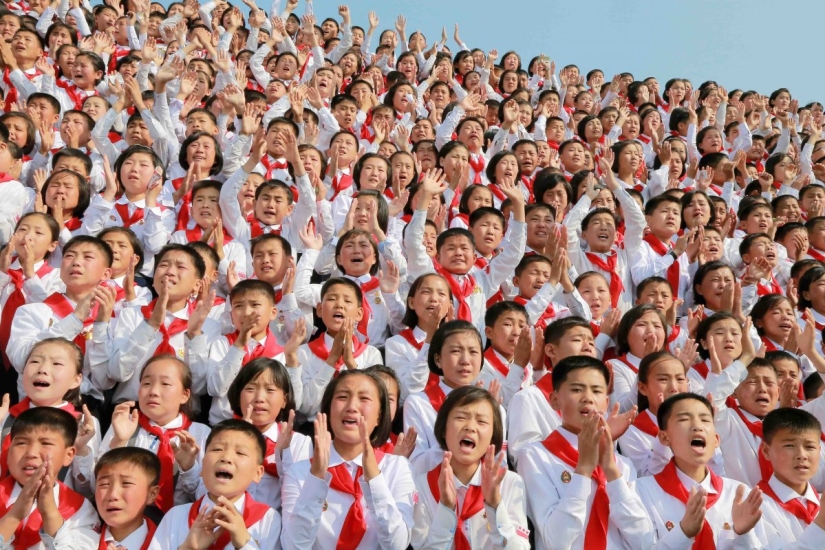 In June 2017, Kim Jong—un organized a performance "We are the happiest in the world" - in honor of the 70th anniversary of the Union of Children of Korea.
In June 2017, Kim Jong—un organized a performance "We are the happiest in the world" - in honor of the 70th anniversary of the Union of Children of Korea.
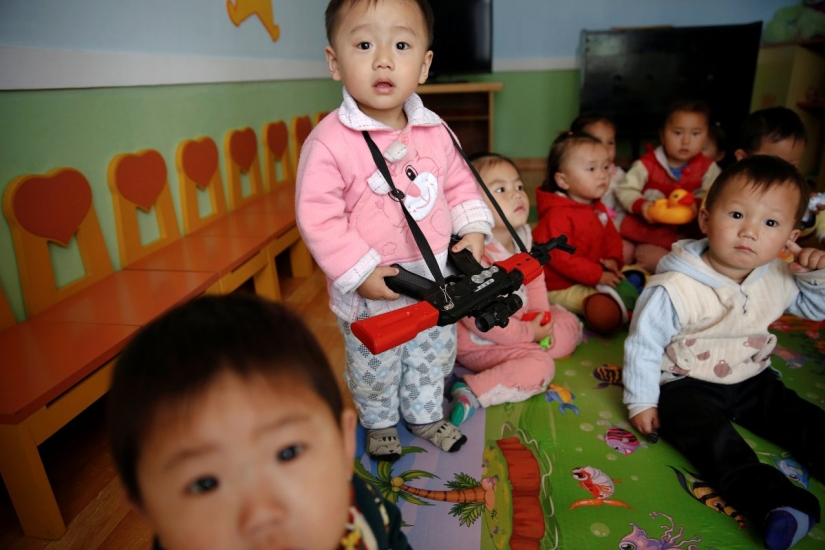 Indoctrination begins in kindergarten. Children learn anti-American slogans, cartoon figures of soldiers attack with toy machine guns and grenades.
Indoctrination begins in kindergarten. Children learn anti-American slogans, cartoon figures of soldiers attack with toy machine guns and grenades.
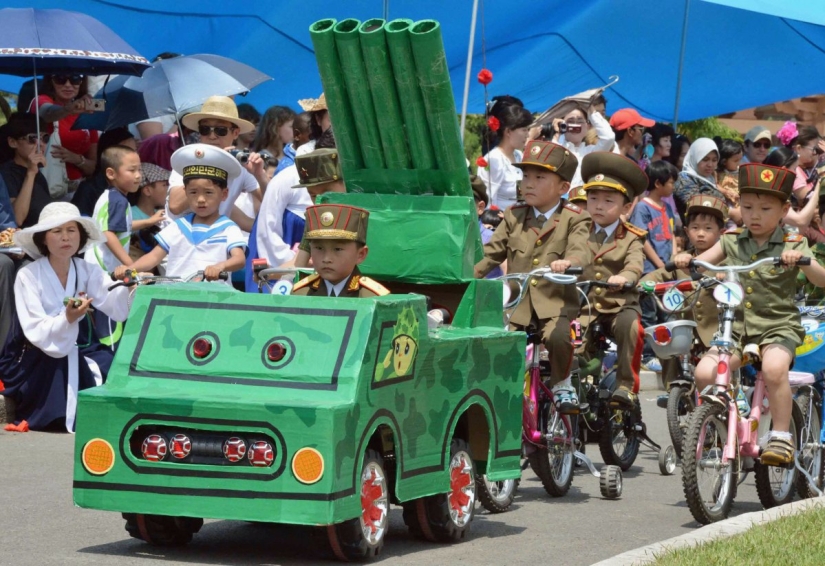 In honor of the International Children's Day, a military parade was held in the capital, where children were dressed as army soldiers.
In honor of the International Children's Day, a military parade was held in the capital, where children were dressed as army soldiers.
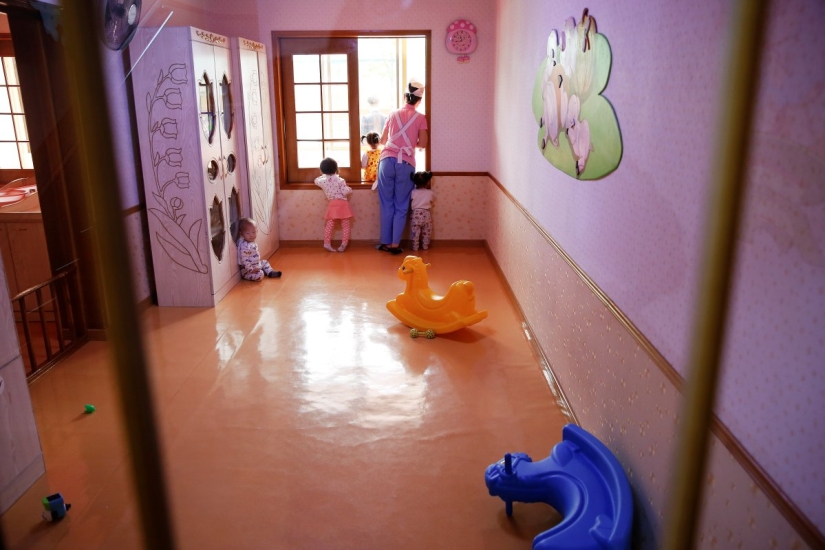 Conditions in schools do not always meet sanitary standards. The kindergarten in the photo is located on the territory of a textile factory.
Conditions in schools do not always meet sanitary standards. The kindergarten in the photo is located on the territory of a textile factory.
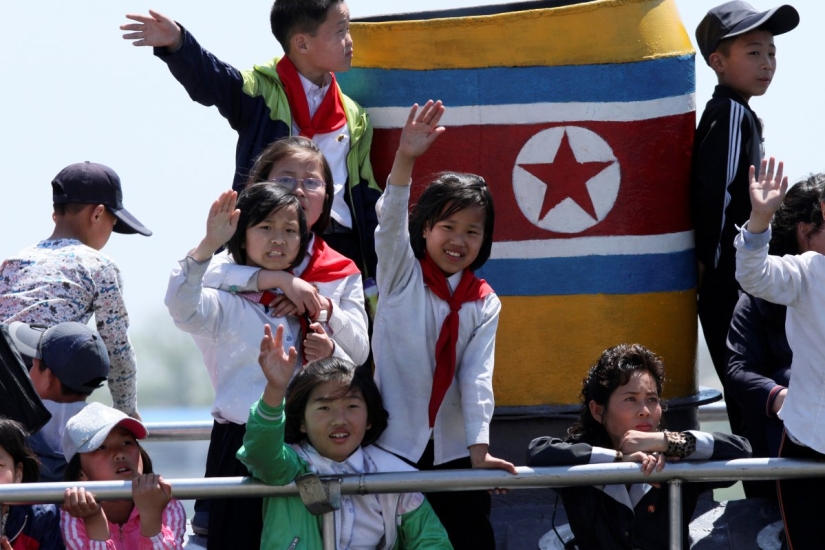 Children in families who do not live in poverty have a slightly better chance of enjoying childhood.
Children in families who do not live in poverty have a slightly better chance of enjoying childhood.
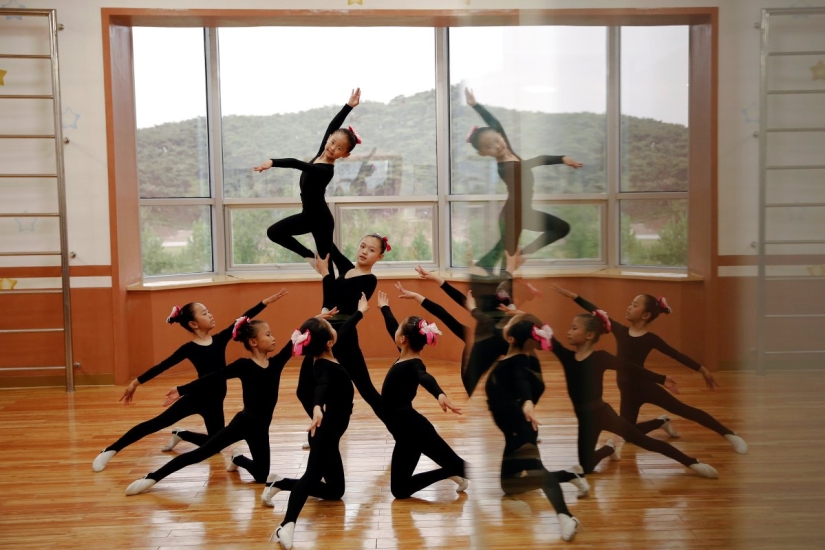 For example, children of high-ranking parents study at the Mangyongde District School Palace. They are engaged in various sports, they are taught foreign languages, they are taught how to work on computers.
For example, children of high-ranking parents study at the Mangyongde District School Palace. They are engaged in various sports, they are taught foreign languages, they are taught how to work on computers.
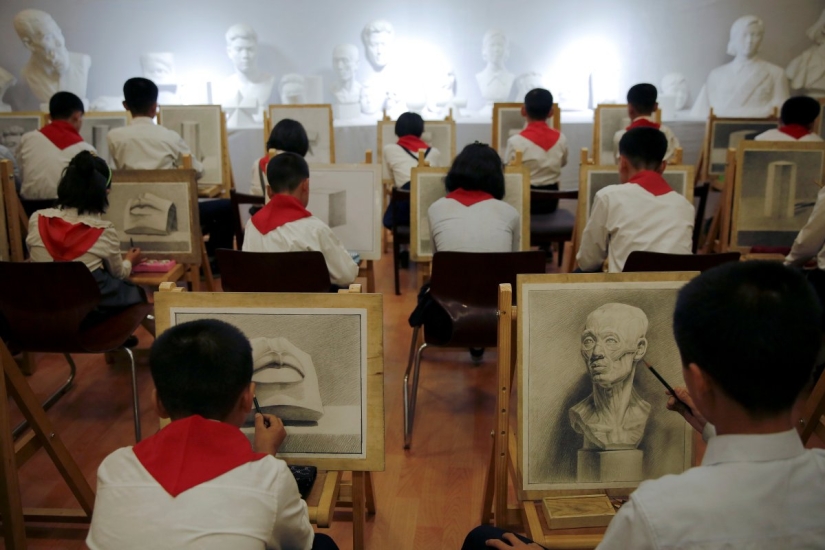
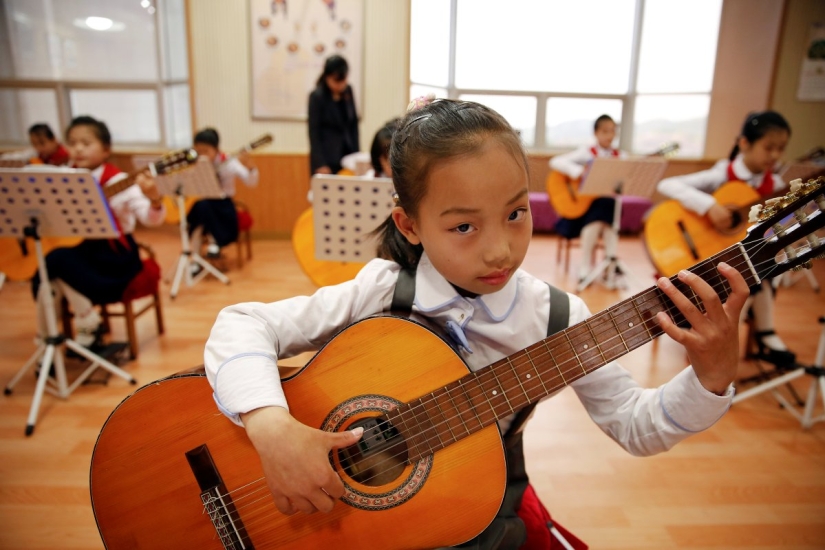 The massive concrete building, run by the Korean Youth Corps, houses up to 5,400 children.
The massive concrete building, run by the Korean Youth Corps, houses up to 5,400 children.
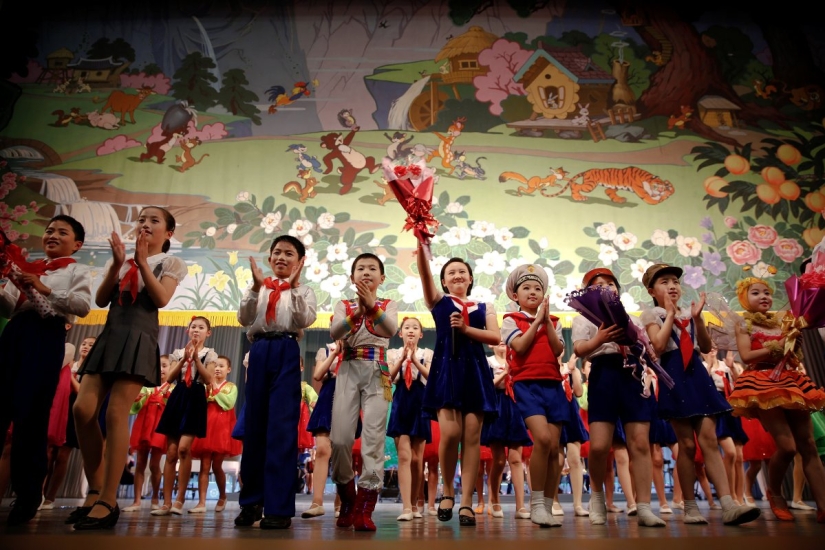 Pompous performances are also a tribute to the North Korean cult of personality. Themes of greatness and honor are ubiquitous.
Pompous performances are also a tribute to the North Korean cult of personality. Themes of greatness and honor are ubiquitous.
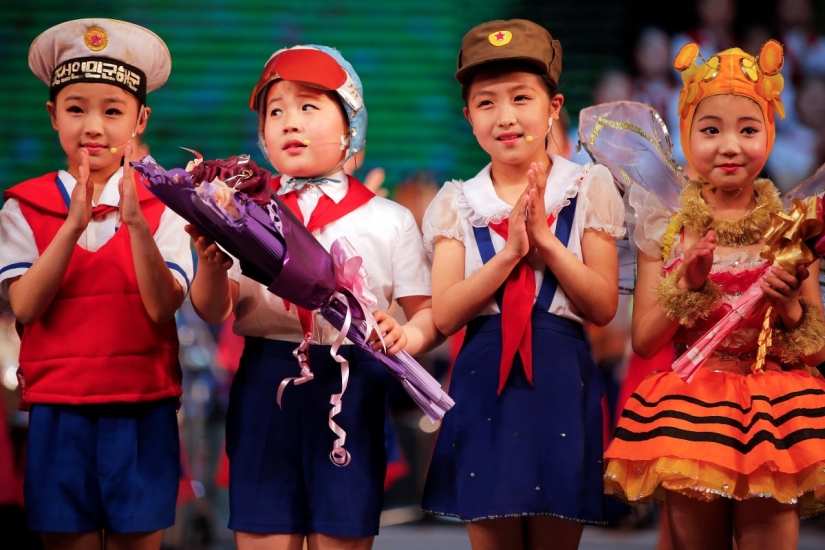 During the presentation for foreign journalists in May 2016, for example, many performances, including choral singing, dancing and acrobatic numbers, had a clear political connotation.
During the presentation for foreign journalists in May 2016, for example, many performances, including choral singing, dancing and acrobatic numbers, had a clear political connotation.
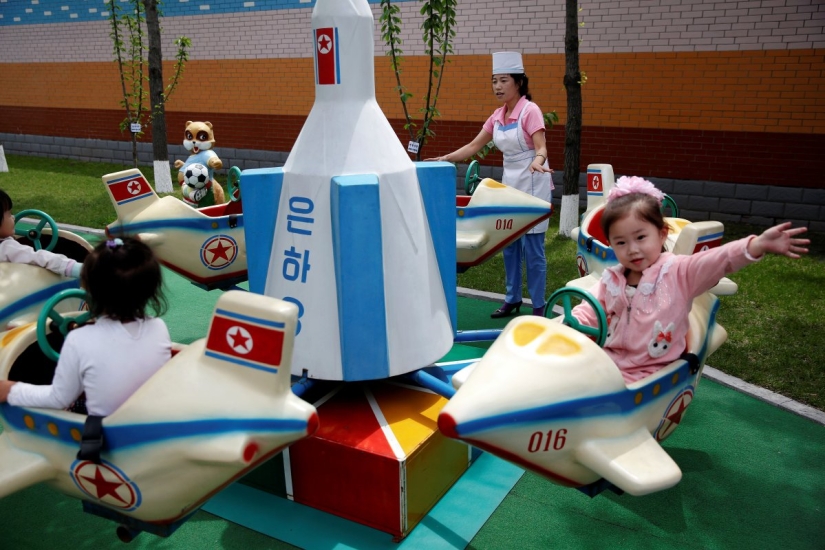 Compulsion and fear come already in adulthood. So the children's time is almost the only opportunity to live a little carelessly.
Compulsion and fear come already in adulthood. So the children's time is almost the only opportunity to live a little carelessly.
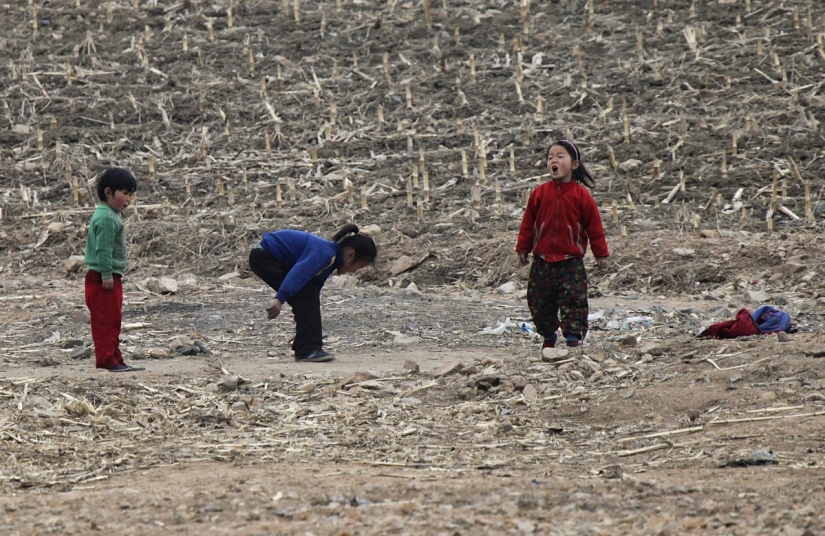 Of course, children are too young to understand when propaganda is being fed to them, or to realize how poor their living conditions are.
Of course, children are too young to understand when propaganda is being fed to them, or to realize how poor their living conditions are.
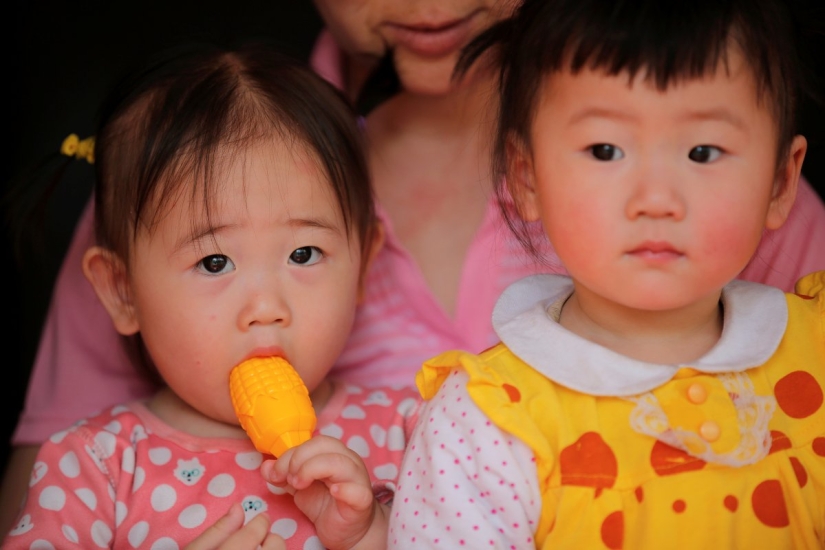 Nevertheless, childhood is also childhood in North Korea. And perhaps it is only at this age that North Koreans have something in common with people from other countries.
Nevertheless, childhood is also childhood in North Korea. And perhaps it is only at this age that North Koreans have something in common with people from other countries.
Keywords: Childhood | North korea | North Korea
Post News ArticleRecent articles

It's high time to admit that this whole hipster idea has gone too far. The concept has become so popular that even restaurants have ...

There is a perception that people only use 10% of their brain potential. But the heroes of our review, apparently, found a way to ...
Related articles

That looked like famous actors of the Soviet screen in the childhood years. Unfortunately, many archived images are preserved not ...

On November 29, 1987, a South Korean airliner en route from Vienna-Baghdad-Abu Dhabi-Seoul disappeared from radar in the Andaman ...

Every boy in his childhood had found a strange metal plate with the letters "W", "E", and sometimes "P". Their origin was shrouded ...

New Year's is a time to surprise and delight loved ones not only with gifts but also with a unique presentation of the holiday ...